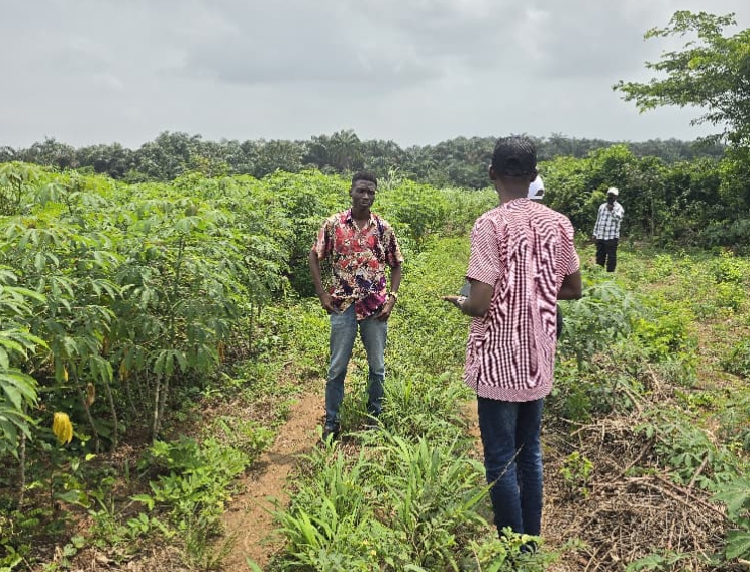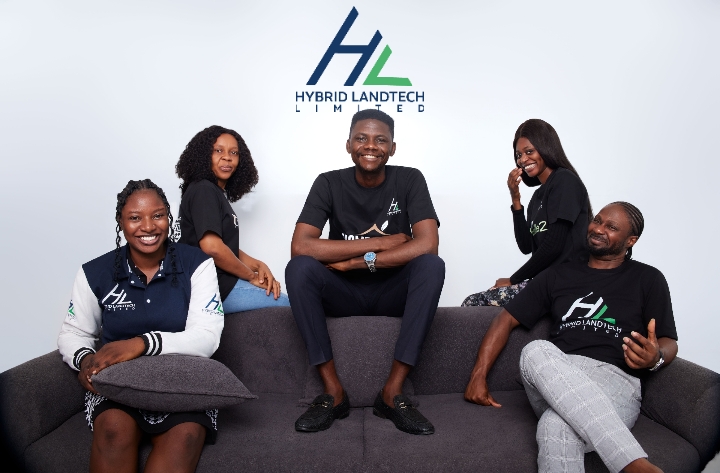Buying land in Nigeria can feel like walking through a field with mines, especially when dealing with omo onile (land-owning families). Many buyers are drawn in by the cheaper prices and the illusion of authenticity, only to discover later that they bought trouble, not property.
According to Mondaq, over 65% of civil cases in court are tied to family land sales, usually due to double-selling or undefined ownership rights. And these issues aren’t confined to Lagos. They’re happening across Ogun, Oyo, and Abuja too.
In this Hybrid Landtech blog, we’ll look at some real-world omo onile scams Nigerians have shared online. I’ll show you the lessons that show why working with verified developers with reliable legal backing and a good track record is smarter and safer.

Why Buyers Still Opt for Omo Onile Land
Despite the risks, many choose family land for reasons such as:
- Lower headline price compared to developed estates
- Flexible, informal payment arrangements
- Perceived trust, especially if the seller is local or known
- A sense of getting a bargain before formal developers take over
However, beneath these apparent advantages lie structural issues: unclear ownership, missing documentation, lack of infrastructure, and no recourse when things go wrong.
Real Stories of Land Buyers and Omo Onile Land Traps
Here are real-life world scenarios from Nigeria involving “omo-onile” land issues, each paired with an analysis that leans into why buying via a verified real-estate company (rather than a family sale) can help sidestep these risks.
Scenario 1: Double sale + mis-representation
From Nairaland Forum:
“I later discovered the land belongs to a man and the person I paid to only delivered 200k to the owner and kept 200k for himself. … Also the owner after collecting the 200k went ahead and sold the land again and did not refund my money. … This happened in Ijoko Ogun state.”

What went wrong:
- Buyer paid a portion of the sum with belief the seller was authorised.
- The “owner” turned out to be different; payments were diverted.
- The land was sold a second time to someone else.
- Buyer was left with building materials, no legal ownership, and threats.
How a good dev/estate-company route mitigates this:
- With a regulated company (with legal processes, surveys, title checks) you reduce the chance of unauthorised intermediaries selling.
- You’re more likely to see complete chain of title, meaning the company has verified the seller is legitimate.
- Because of documentation and contractual obligations, the likelihood of a second sale or fraud is lower.
- You gain greater recourse if something goes wrong; a company behind the deal, not just an individual.
Scenario 2: Harassment + additional “fees” after purchase
From Nairaland:
“I bought virgin land … cleared my land, erected a dwarf fence … Then they started harassing my workers that my land is more than their regular size. They threatened to destroy my fence and I was basically held hostage. So I paid.”
What went wrong:
- After purchase and even some site-works, the “omo onile” group claimed extra rights.
- They used intimidation and threats to force further payments.
- The ownership wasn’t secure enough to resist these claims.
Why a company with good legal backing is safer for buying & holding
- If you buy via a developer, documentation often covers full control of the plot, reducing local “extra fee” claims.
- Companies may handle or negotiate community/estate obligations upfront so you don’t face surprise levies.
- Having the company as the seller means you’re less vulnerable to local renegotiations or informal demands.
- When you hold the land long-term, you want fewer surprises. A developer’s infrastructure, boundary markers, and layout plans support that.
Scenario 3: Signing fees & control post-sale
From another Nairaland thread:
“By the time you come to your site one morning and see your building demolished, your eyes go clear. … 5 of them on 5-bikes stormed the site and packed all the building’s equipment.”
What happened: After purchase and even site works, “omo onile” agents or local custodians moved in, threatened demolition or actual confiscation because fees hadn’t been paid or there was perceived non-compliance.
Why this shows risk: Ownership/possession is still vulnerable because the traditional/ local “control” dimension was ignored.
Lesson: Be aware that in some areas local custodians still exert power; without clarifying any “signing fee” or post-purchase obligations or engaging local intelligence (residents, community leaders), that land isn’t truly yours.
Scenario 4: Multiple claims + boundary ambiguity
From a blog covering the scenario in Epe, Lagos:
“One of the most common scams is selling the same plot of land to multiple buyers … Or the land sold does not correspond to the agreed size or boundaries… the buyer discovers neighbouring landowners are claiming part of their property.”
What went wrong:
- Plot sold multiple times, so buyer’s claim overlaps another.
- Boundary measurement and surveying were likely poor or missing.
- The buyer ends up in disputes, delay, legal costs or loss of value.
Why buying via a proper real-estate company helps for long-term hold:
- Developers tend to conduct surveys, demarcation, and approval before sale, giving clearer boundary and less overlap risk.
- The company often lays out infrastructure (roads, drainage) which helps preserve value and clarifies plot sizes.
- When you hold land for years, you want confidence the title is clean and survey is correct; companies are more likely to provide that.
- With family-sales you might get a bargain, but the hidden cost is the risk of disputes, which erodes hold-value.
Key take-aways (from a buy-&-hold perspective)
- Holding land long-term means you’re expecting ownership rights to stay uncontested. Family-sales via “omo onile” frequently carry the risk of later claims, levies or disputes.
- When you buy via a real-estate company, the process typically involves rigorous checks (title, survey), which sets you up for stable ownership over time; less interruption, more predictability.
- The cost might be higher up-front, but the drain on time, stress and value from a contested land can far outweigh that saving.
- If you’re planning to sit on the land, wait for appreciation or develop later, the frictionless hold matters a lot. So investment via structured company-estates is preferred for many savvy buyers.
Why You Can’t Safely “Buy & Hold” With Omo Onile
When you purchase land for the long-term (whether to sit on the plot, develop later, or resell) you need stable ownership rights and minimal ongoing risk. Family-sales often compromise this:
- Without a clear chain of title or government-recognised document, you might face future ownership claims, making your hold unstable.
- Delays or absence of proper documentation hinder your ability to resell or mortgage the land.
- Absence of infrastructure (roads, drainage, fencing) makes the land harder to maintain and less attractive over time.
- Post-sale issues (local levies, control by traditional landlords, overlapping claims) erode value and create stress.
If you’re thinking of buying and holding, you want certainty, traceability, and minimal surprise costs, none of which are guaranteed when dealing with informal family land sales.
How Developers Like Hybrid Landtech Protect Buyers

Working with a credible developer doesn’t remove all risk but it seriously shifts the game in your favour. At Hybrid Landtech you’ll find an approach built around verification, documentation and long-term value:
- Every estate goes through legal and survey verification, ensuring chain of title, registered survey, and appropriate approvals. For instance, Hybrid Landtech offers estates with C-of-O for its customers in estates like Gidi Town, Ikola; Ala-Bama; Primrose Phase 2, and Havens Cottage.
- In all cases, you’ll receive receipt documentations, allocation letters, deed of assignment, and survey plan, which are all traceable and structured.
- Estate infrastructure: roads, drainage, perimeter fencing, and layout planning that support more than just “buy and hope” scenarios.
- Location-strategic developments in areas with growth momentum (e.g., Lagos and Ogun States) so your hold has appreciation potential.
- Developer accountability: You’re dealing with a corporate entity, audited projects, and known processes, not a private individual selling unverified land.
Final Thoughts
Buying land isn’t just about today’s price but about tomorrow’s certainty. When you purchase from an “omo onile”, you’re placing your future on trust and hope. The scenarios we’ve shown aren’t isolated; they reflect patterns: double-sales, levies during builds, boundary issues, lack of proper title.
When you buy from a developer like Hybrid Landtech, you’re anchoring it in process, documentation and long-term structure.
If you plan to hold your land for years, build later, or even just look for value appreciation, you’re better off choosing the route where things are verified, structured, and built to last.
Most importantly, we are legally accountable. If anything goes wrong, there’s a clear paper trail and a company to face, not a faceless family committee. Start your property journey with Hybrid Landtech by leaving us a message, dropping a WhatsApp chat, or dialing +234916 247 9433

